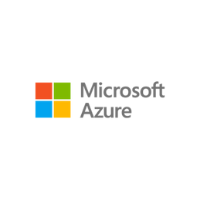
Microsoft Azure
View Brand PublisherFrom creator economy to personalised learning to learning from anywhere, experts on reimagining edtech and innovating for scale
Gamification, hyper personalisation of content, immersive learning experiences, amalgamation of theory and hands-on learning were some of the interesting edtech trends that founders and senior industry tech leaders discussed at a roundtable organised by Microsoft.
With the changing paradigm of the delivery of education, edtech and learning platforms are increasingly seeking to build flexible, scalable apps that are highly data-driven, infused with inherent intelligence. Today, edtech platforms are looking for scalable, cloud-native/serverless apps that can help them deliver the best-in-class experience for their learners.
To explore these elements further, YourStory and Microsoft organised a roundtable discussion titled ‘Reimagine edtech: Innovate for scalable platforms’, featuring Mohammed Zeeshan, Co-founder and CEO, MyCaptain; Shivani Mehrotra, Co-founder and CEO, Edubuk; Sujeeth Kanuganti, Founder and CEO, AspectO; Vishal Sunil, Co-founder and CTO, RocketLearning; Mohit Golecha, Co-founder and CEO, AnaStrat; Rohan Sinha, Co-founder, Kohbee; Pratik Bajaj, Founder and CEO, Valuationary; and Dahnesh Dilkhush, CTO - Microsoft Azure, India.
Is automation the future of edtech?
Speaking about gamification, hyper personalisation using AI, and the use of AR and virtual reality, Shivani said, “Gamification and stimulations are great when it comes to learners absorbing things and reacting to new learnings. We are also seeing hyper personalisation of content where data analytics and AI are being used for adaptive learning. In addition to these, the trend of building immersive learning experiences using AR, VR and mixed reality is truly disrupting education at every level.”
Shivani added that applications of these trends are already becoming more cost effective and stable as the industry is seeing excellent use cases of their applicability across all segments of education and learning.
Adding to Shivani’s opinion, Sujeeth reiterated that the ongoing and upcoming technology trends will be successful only when they are embedded in the operations system of educational institutions, becoming a value-add in their existing curriculum. “Educational institutions are now shifting to hybrid mode. Bringing the offline and online students together and engaging them on a single platform is becoming the key,” he added.
Connection between edtech sector and creator economy
Citing the example of influencers such as Ankur Warikoo and YouTuber and teacher Khan Sir, Rohan spoke about the trend where popular educators have moved on from edtech platforms to build their own brands. “Pre-recorded courses are making a comeback because these YouTubers are now able to monetise their audience. An important thing to note is that these creators are great teachers because they are entertainers first,” he added, highlighting that edtechs will be driven by the content creators-cum-educators, especially in the niche segments.
He cited the example of crypto where creators have started putting up teaching material on it while the edtechs are still catching up.
Personalised learning
Mohit highlighted how several programmes by edtech startups focus on specific skills that a learner wants to adapt. “Platforms are offering specific engineering and MBA programmes which are empowering a lot of students to learn exactly what they want,” he added.
A few platforms are also collaborating with other companies to give hands-on, practical experience along with theory to their learners. “So the hybrid form isn’t limited to online and offline, it is also happening between practical and theoretical experiences, and this connection is off to a great change,” he quipped.
Stressing on the asynchronous model of learning where children can learn at their own pace, Vishal said, “As we go forward, it is going to be more integrated, asynchronous, and more focused about equitable learning outcomes rather than just access.”
Learning from anywhere
There is a clear shift in the patterns of learning - from creation and consumption of content to delivery of the content and attaching outcomes to the content being consumed by the learners. “We have to ensure that the content is available always and the experience of consuming it is consistent [irrespective of mobile or laptops], taking into account the security and privacy aspect is equally important, and most importantly, making sure that the distribution of content is agile so you can quickly create content depending upon the use case,” added Dahnesh.
He concluded by acknowledging that the opportunity in the edtech space is massive because of the diverse set of ideas and use cases in this segment. He also reiterated the need for the right tools, platform, and talent to sustain a great idea.







